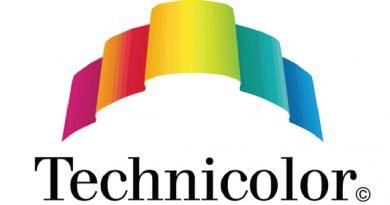Technological Advances Reshaping the Landscape of Healthcare: A Glimpse into the Future
The healthcare industry has always been at the forefront of technological innovation. From the discovery of penicillin to the development of the MRI, technology has been instrumental in advancing medical knowledge and improving patient outcomes. However, with the rise of digital health and the Internet of Things (IoT), technology is set to revolutionize healthcare in ways we could not have imagined just a few years ago.
In this, we will explore the various ways in which technology is revolutionizing the future of healthcare.
Telemedicine, also known as telehealth, is the use of telecommunications and information technology to provide healthcare services remotely. With the help of video conferencing and mobile apps, patients can now consult with healthcare providers from the comfort of their own homes. This is particularly beneficial for patients who live in remote areas or have mobility issues.
Telemedicine has also proved to be invaluable during the COVID-19 pandemic, allowing doctors to treat patients while minimizing the risk of infection. According to a report by McKinsey & Company, telemedicine adoption in the US increased from 11% in 2019 to 46% in 2020, and it is expected to remain a popular option even after the pandemic subsides.
Wearable technology, such as fitness trackers and smartwatches, is not new to the market. However, these devices are becoming increasingly sophisticated, and they are now being used to monitor vital signs and detect early warning signs of health problems.
For example, the Apple Watch can detect irregular heartbeats and atrial fibrillation, while the BioSticker from BioIntelliSense can monitor vital signs such as temperature, heart rate, and respiratory rate. Wearable technology is also being used to track patient adherence to medication regimens and monitor recovery after surgery.
Artificial intelligence (AI) is already being used in healthcare to improve diagnosis and treatment decisions. Machine learning algorithms can analyze large amounts of data to identify patterns and predict outcomes, which can help doctors make more informed decisions.
AI is also being used to develop personalized treatment plans based on a patient’s genetic makeup, medical history, and lifestyle factors. This approach, known as precision medicine, has the potential to revolutionize healthcare by delivering targeted treatments that are tailored to individual patients.
Robotics is another area of technology that is poised to revolutionize healthcare. Robotic surgery, in particular, is becoming increasingly popular, as it allows surgeons to perform minimally invasive procedures with greater precision and accuracy.
Robots are also being used to assist with rehabilitation and physical therapy. For example, the Ekso GT exoskeleton from Ekso Bionics can help patients with spinal cord injuries learn to walk again, while the KUKA Medical Robot can assist with upper-limb rehabilitation.
Blockchain technology is best known for its use in cryptocurrency transactions, but it also has potential applications in healthcare. Blockchain can be used to securely store and share medical records, allowing patients to have more control over their health data.
Blockchain can also be used to streamline the healthcare supply chain, reducing the risk of counterfeit drugs and improving medication tracking and traceability. This can help to improve patient safety and reduce healthcare costs.
In conclusion, technology is set to revolutionize the future of healthcare in countless ways. From telemedicine to wearable technology, artificial intelligence, robotics, and blockchain, the possibilities are endless. As we continue to embrace these technological advancements, we can look forward to a future where healthcare is more personalized, accessible, and effective than ever before.




